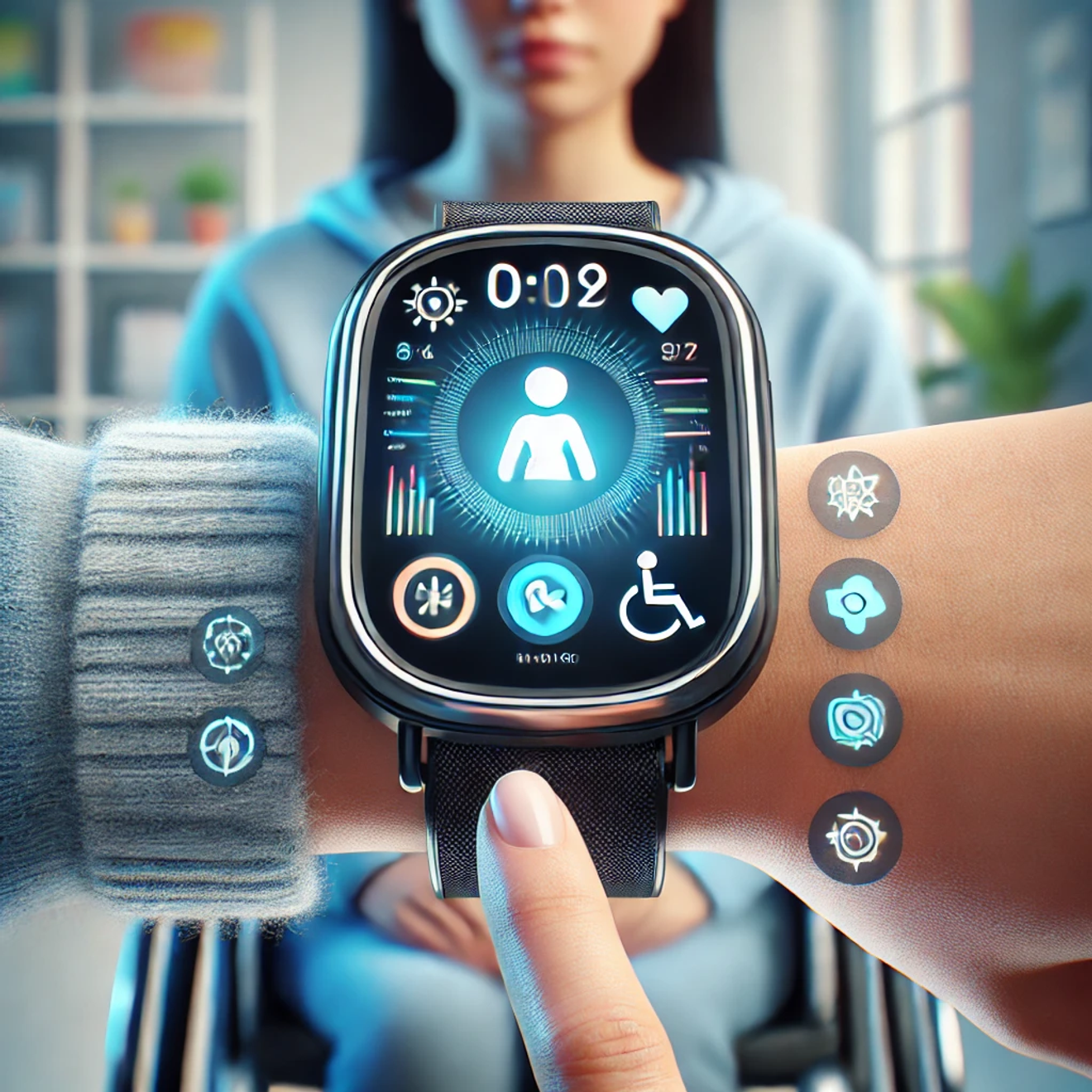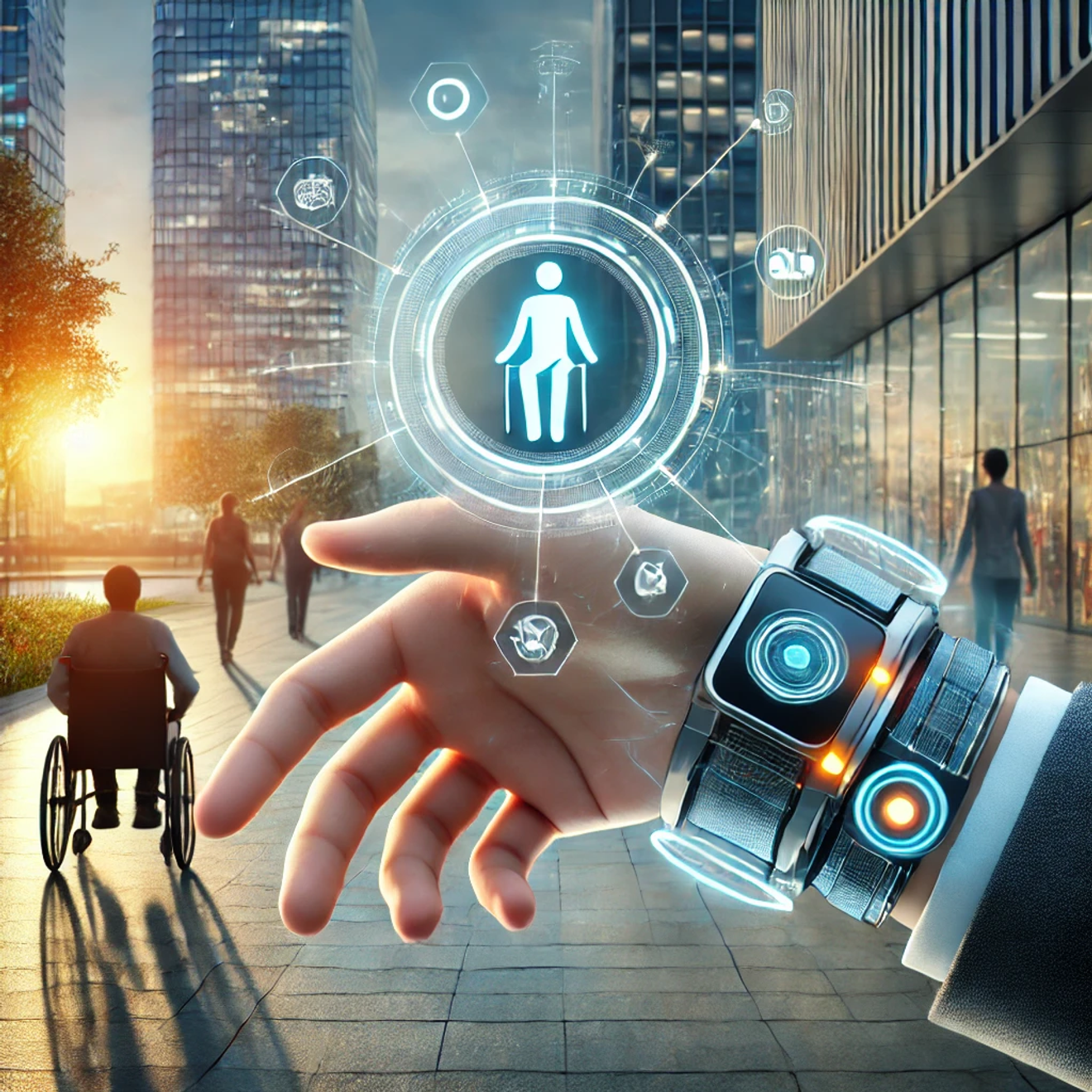- ≪장애인인식개선신문≫ 인공지능 AI 장애인 보조기기 …글로벌 기업의 신제품과 미래 전망
- 인공지능 AI 장애인 보조기기 …글로벌 기업의 신제품과 미래 전망 © 장애인인식개선신문인공지능 기반 장애인 보조기

AI-Powered Assistive Devices for People with Disabilities: Global Companies' New Products and Future Outlook
AI-Powered Assistive Devices for People with Disabilities: Global Companies' New Products and Future Prospects
[Disability Awareness Column]Disability Awareness Newspaper = Choi Bong-hyeok, Columnist
Introduction
The remarkable advancements in Artificial Intelligence (AI) technology are driving innovation across various fields, and notably contributing to improving the quality of life for people with disabilities. Global companies are developing innovative assistive devices for people with disabilities that incorporate AI technology, opening up new possibilities in diverse areas such as mobility, communication, and learning. This report provides an in-depth analysis of the current status and future prospects of AI-based assistive devices for people with disabilities, and analyzes the positive impact these technologies can have on disability awareness, enhanced job skills, and employment promotion.
1. Current Status of AI-Based Assistive Devices for People with Disabilities
1.1 Major Products of Global Companies
Brain-Computer Interface (BCI): This technology analyzes brainwaves to control external devices, assisting individuals with paralysis who are conscious with communication and mobility. Neuralink and Synchron are representative companies in this field.
Exoskeletons: These robots are worn on weakened or paralyzed body parts to assist with movement. Ekso Bionics and ReWalk Robotics are developing related products.
Assistive Devices for the Visually Impaired: Various products are being developed for the visually impaired, including smart glasses and tactile displays. AI enhances image recognition and voice description functionalities.
Assistive Devices for the Hearing Impaired: Cochlear implants and artificial cochleas are available for the hearing impaired. AI is used to improve speech recognition accuracy in noisy environments.
1.2 Role of AI Technology
Personalized Services: AI analyzes an individual's physical characteristics and environment to provide tailored assistive functionalities.
Natural Interactions: Speech recognition and natural language processing technologies enable more natural interactions with users.
Continuous Learning: AI continuously learns based on user data to improve its performance.
Prediction and Prevention: Monitors health conditions and detects abnormalities to take predictive and preventive measures.
2. Future Prospects of AI-Based Assistive Devices for People with Disabilities
Integration of Various Functions
By combining various sensors and AI technologies, complex assistive devices that integrate diverse functions such as mobility, communication, and learning will be developed.
Advanced Human-Machine Interaction: With advancements in brain-computer interface technology, interaction between humans and machines will become more intuitive and natural.
Integration with Virtual Reality (VR) and Augmented Reality (AR) Technologies: VR/AR technologies will be leveraged to provide people with disabilities with richer experiences.
Data-Driven Personalized Services: Big data analysis will be used to provide personalized services optimized for individual user characteristics and environments.
3. Changes Brought About by AI-Based Assistive Devices for People with Disabilities
3.1 Improved Disability Awareness
Changes in Perception Driven by Technological Advancements: As AI technologies enable people with disabilities to live more independently, social perceptions will improve.
Harnessing the Potential of People with Disabilities: Supporting individuals with disabilities in maximizing their potential through AI assistive devices will contribute to eliminating social biases.
3.2 Enhanced Job Skills and Employment Promotion
Improved Job Performance: AI assistive devices can support people with disabilities in enhancing their physical and cognitive capabilities needed to perform their jobs, thereby boosting productivity.
Ability to Perform a Wider Range of Jobs: AI advancements will expand the range of jobs that people with disabilities can perform.
Increased Employment Opportunities: As job performance improves and the scope of jobs expands, employment opportunities for people with disabilities will increase.

AI-Powered Assistive Devices for People with Disabilities: Global Companies' New Products and Future Outlook
3.3 Increased Social Participation
Enabling Independent Living: AI assistive devices will empower people with disabilities to live independently, leading to increased social participation.
Increased Community Activities: AI-powered communication tools enable people with disabilities to communicate more easily with others and participate in community activities.
Conclusion
AI-based assistive devices for people with disabilities will play a crucial role in enhancing their quality of life and expanding their social participation. However, alongside technological development, concerted efforts in social awareness building and institutional support are essential for AI technologies to truly benefit people with disabilities.
=Choi Bong-hyeok, Columnist=
(ESG, RE100, DX, and AI Convergence Expert, In-house Disability Awareness Training Specialist)
Vice President, Korea AI & ESG Education Association
Director, Korea Purchasing & Supply Management Society
Director, Korea Press Information Technology Association
Publisher, Sports People Times
Publisher, Disability Awareness Newspaper
Korea Federation of Disabled People's Cultural and Arts Organizations
Deputy Chairman, Cultural and Arts Policy Committee
In-house Disability Awareness Training Specialist
Books
• Whispers of Americano in the Morning Mist - Coffee Essay
• Disability Awareness Column - ESG Management - Disability Inclusion Policy
• 2024 Bitcoin Forecast and Fact Check
• 2024 Second Half Bitcoin Forecast
• AI Prediction - 2024 Best 13 AI Trend Forecasts
• Essay on Special Exhibition of Artists with Developmental Disabilities in Gyeongnam
• ESG Management Column
• Dong-woo Park, the Hidden Hero of US-Korea Civil Diplomacy, Deputy Assistant Secretary for Disability Policy under the Obama Administration
• The Cube of Flexibility - Essay by Im Jung-eun and Choi Bong-hyeok
• ESG & RE100 Management Column
• Breaking Through the Darkness to Dawn (Planned Publication)
[References]
Neuralink: https://neuralink.com/
Synchron: https://www.synchron.com/
Ekso Bionics: https://www.eksobionics.com/
ReWalk Robotics: https://www.rewalk.com/

Comments0